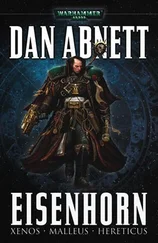"That is so," the voice admitted, a hot, horrible breath in his ear. "You do not know me by this name. But I know you! I know you by all your various names: the Count d'Hiver; Clubmaster; Hellhound; Master Incarnate of the Ancient and Evil Order of Hellfire. I know you!"
D'Hiver felt a momentary shock almost greater than the physical pain. He had not expected that. He twisted his arm around and thrust his heel backward in a swift kick, making a sudden desperate attempt to break free. He felt the heel connect hard against his captor's leg. But despite his twisting and kicking, and the grunt the kick drew from Plantagenet, the arm never loosened from around his neck.
"You're making some sort of mistake," he insisted, giving up the struggle. "I have no idea what you're talking about!"
"No?" the soft voice of Richard Plantagenet breathed. "Pity. Then you'll die for nothing. For whether or not you tell me why you are killing the others, I shall still certainly kill you. And within the next few minutes, too. I will lift my arm" — he applied just a little upward pressure, and a great knot of pain thrust itself through the back of d'Hiver's neck and up into his brain—"and you will be quite uncomfortable. And then you will be dead."
"Wait, wait; listen," d'Hiver croaked. "Let me talk."
"Talk."
D'Hiver took a few deep breaths, to try to calm himself. There was always a way to turn any situation to your own advantage, if you were smart enough. Even this one.
The pressure increased on his throat. "Waiting for someone to come by and save you? Won't happen; you have my word it won't. Talk."
"I am who you say I am," d'Hiver gasped, squeezing the words through his compressed windpipe.
"I know you are," the other said reasonably. "Did you think I was guessing? Is that what you have to tell me?" The pressure increased again.
"Wait! Wait! Think! If you know who I am, if you know who the men who died were — then how can you think that I killed them?
I was their master; I was their guide. I was not their enemy. Whoever is committing these murders must surely be after me, too. You can see that, whoever you are."
"We are brothers, as are all men," the whisper sounded in his ear. "I am your brother, and you are my brother; you have killed my brother, and I must kill you. Simple, isn't it?"
"Not so simple," d'Hiver insisted. "I did not kill your brother."
"Who did," the soft voice asked, "and why?"
"I am trying to find out who is behind these killings," d'Hiver said. "You think I am not? Who is your brother?"
"Was," the voice corrected. "My brother was Lord John Darby; now he is dust."
"Crecy!"
The arm tightened around his throat. "You may call me Richard Plantagenet," the man who had once been Lord Crecy Darby said.
"Of course, of course! I'm sorry. Plantagenet it is. Where have you been, Cr — Plantagenet?"
"Away. I have been performing experiments. Remember how we used to experiment, d'Hiver? I have done more — much more. But someone murdered my brother, and so I have come back. To speak with you; perhaps to kill you."
"Not me, Plantagenet. Help me catch the man who is really doing this. I need your help."
"If I am to believe you."
"Listen, you know who I am. You know where I live. You know how to find the club. If I'm lying to you, you can kill me later."
"That is so." The grip around his throat lessened, but did not release. "I want to find the murderer of my brother. This is distracting me from other work."
"I will help you," d'Hiver insisted. "It is to our interest to find the killer, and to eliminate him before Scotland Yard gets to him."
"So?"
"His motive must intimately concern us, since everyone so far identified murdered by this maniac has been one of us."
"Someone within the group?"
"I do not think so. Come home with me; my carriage is over there. We will discuss the possibilities."
"Fair enough." The hold around his throat was released.
Together, they moved out of the shadows.
There was the clicking sound of high heels on the pavement, and a cloaked figure rapidly headed back up the street.
"How long was she standing there?" d'Hiver demanded.
"I don't know. I didn't hear her. Who is she?"
"A girl reporter. She must have heard too much. Grab her— silently. I'll pull my carriage up."
The large figure disengaged from d'Hiver and raced silently up the street. There was a strange sound that could have been the beginnings of a girl's scream, suddenly choked off. The two constables outside the front door heard it and ran down the street, flashing their lanterns about.
The Count d'Hiver descended from his carriage and helped them look about. They found nothing. Nobody thought to look in the Count d'Hiver's carriage.
NINETEEN — THE GREAT TRAIN ROBBERY
Beyond (51 1/2 M.)
Beer
(or Bere)
Ferrers
we cross the
Tavy
and skirt the E. Bank of the
Tamar
(p. 151).
55 3/4 M. St. Budeaux
(for
Saltash,
p. 151);
57 M. Ford; 58 M. Devonport
&
Storehouse
(see pp. 150, 151). We then pass the suburban stations of
North Road
and
Mutley
and enter the
Friary Terminus
at (62 1/2 M.)
Plymouth.
— Baedeker's Great Britain
It took Barnett and Professor Moriarty the better part of two days to reach Plymouth. Moriarty left the train repeatedly, to confer with an odd assortment of agents who were awaiting him in such places as Weston-super-Mare, Taunton, Newton Abbot, Totnes, Dawlish, Teignmouth, Paignton, Okehampton, Tavistock, and nine other, even smaller, towns. It seemed to Barnett, who tagged along, that the professor was pleased with the results of these conferences.
Barnett listened to the usually brief conversations, but they told him very little, and Moriarty volunteered no additional information. "Are the pit reinforcements holding?" Moriarty asked the short Welshman who had rented a house in Dawlish for himself and his crew. "With nary a shiver," the Welshman told him. "Are the false cross-ties completed?" he asked the skinny Cockney who had opened a workshop in Teignmouth. "Work like a dream," he was informed. "How is Toby's nose?" he asked the slender man in the well-worn tweeds who awaited them at the Totnes Station. "His nose, his lungs, his voice, and his fightin' heart are all waitin' on your needs," the tweedy man told him. At each stop Moriarty passed an envelope to the person awaiting him. "Here are your instructions from this moment; take every care," he told each.
At Plymouth, Lord East's preparations were well in hand for the loading of the treasure train, which was scheduled to take place the next morning. The two companies of Her Majesty's Bengalese Foot, which had been encamped in a park by the west wall of the Citadel, had moved to the railway assembly yard and were busily patrolling the area between the H.M.S. Hornblower and the line of railway goods wagons, which had been meticulously prepared to receive the treasure. The Twenty-third Light Horse were occupying themselves by cantering about Plymouth, giving the citizenry an exhibition of precision horsemanship.
Barnett and Moriarty took rooms at the Duke of Clarence, an ancient and venerable inn some blocks from the scene of the Lord East activity. When they arrived, Barnett went to his room and collapsed for several hours, exhausted by the inactivity of train travel. Then he gave himself a quick sponge bath and put on, among other things, a fresh collar. Moriarty awaited him in the gentlemen's reading room on the first floor, a long, narrow room with a low beam ceiling, which went across the front of the hotel, overlooking the street. It had been completely outfitted, according to a plaque on the wall, with furniture and fittings from the admiral's cabin, the captain's cabin, and the wardroom of the 96-gun ship of the line H.M.S. Indefatigable, which had carried Admiral Pellew to Egypt in 1803, salvaged when she was turned into a hulk in 1836.
Читать дальше












